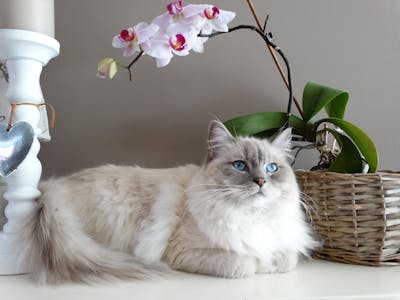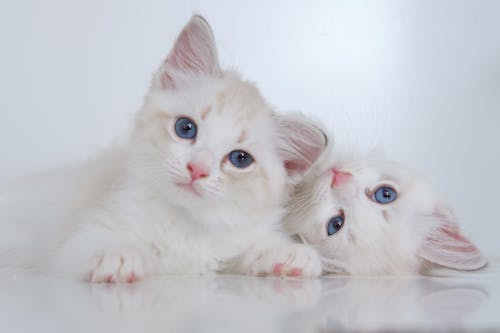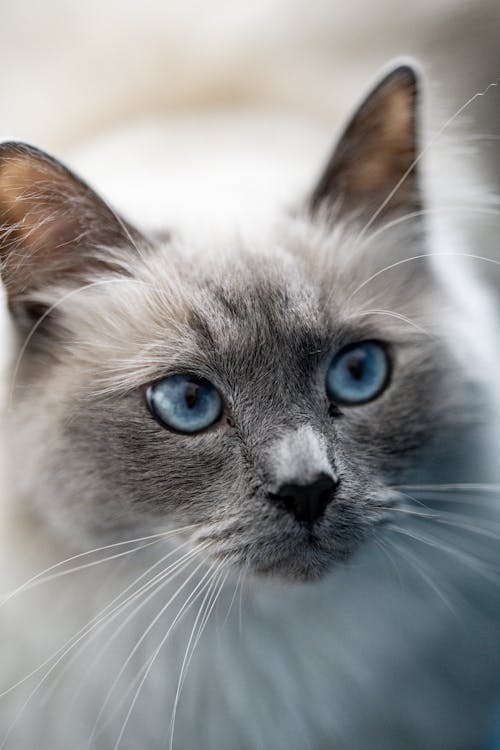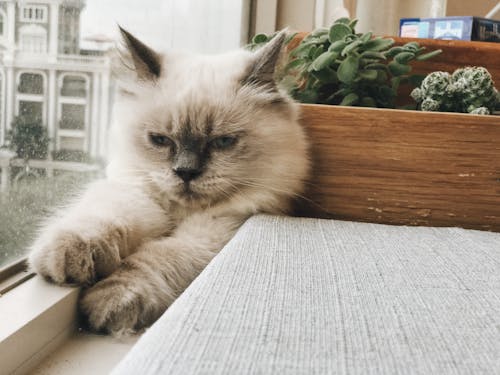Ragdoll Cat Temperament: Unveiling the Gentle Souls of the Feline World

The Ragdoll cat, with its striking blue eyes, luxurious semi-longhair coat, and a name that evokes images of soft, cuddly dolls, is a breed that has captured the hearts of cat lovers worldwide. But beyond their captivating appearance lies a temperament that is equally as endearing. Known for their docile nature, affectionate personalities, and tendency to go limp when held, Ragdolls have earned a reputation as one of the most gentle and loving cat breeds. This article will explore the temperament of this popular breed.
The Ragdoll cat temperament is characterized by a unique blend of traits that make them ideal companions for individuals and families alike. They are often described as “puppy-like” in their devotion to their owners, following them from room to room and greeting them with enthusiastic purrs. Understanding the nuances of the Ragdoll’s personality is key to appreciating these remarkable creatures and providing them with a fulfilling life. This article will help you to understand the unique traits of this breed.
This comprehensive guide will delve into the gentle and loving nature of the Ragdoll cat temperament, exploring their affectionate tendencies, their playful side, and their adaptability to different environments. We’ll also discuss their intelligence, their social needs, and their suitability for families with children and other pets. By understanding the defining characteristics of the Ragdoll’s personality, you’ll be better equipped to provide them with the care and companionship they deserve. This article will help you decide if a Ragdoll is right for you.

1. Affectionate and Loving: The Heart of the Ragdoll
At the core of the Ragdoll cat temperament lies an abundance of affection. These cats are known for their deep love and devotion to their owners. They often seek out physical contact, whether it’s cuddling on the couch, sleeping in their owner’s bed, or simply sitting on a lap. They are known to greet their owners at the door and follow them around the house, much like a loyal canine companion.
Their affectionate nature extends beyond their immediate family. Ragdolls are generally friendly and welcoming to visitors, often greeting them with curiosity rather than fear. They are known to be patient and tolerant, making them a good choice for families with children. Their gentle demeanor makes them a popular choice for therapy animals. These cats are known for their loving personalities.

2. Docile and Relaxed: The Epitome of Calmness
Ragdoll cats are renowned for their docile and relaxed nature. They are typically calm and easygoing, and they are not easily startled or agitated. This is partially where they get their name; they tend to go limp and relaxed when held, like a ragdoll. This characteristic makes them a joy to cuddle and handle. These cats are known for their calm demeanor.
Their relaxed temperament makes them well-suited for indoor living. They are not as demanding or high-energy as some other breeds, and they are often content to simply relax and observe their surroundings. While they do enjoy playing, they are not typically destructive or overly mischievous. The Ragdoll’s calm nature makes them a peaceful addition to any home.

3. Playful and Engaging: A Gentle Spark of Energy
While Ragdolls are known for their calm demeanor, they also have a playful side. They enjoy playing with toys, chasing laser pointers, and engaging in interactive games with their owners. Their playful nature is often described as gentle and charming, rather than boisterous or overly energetic. They retain their kitten-like playfulness well into adulthood.
Providing them with toys and opportunities for play is important for their physical and mental well-being. They are intelligent cats who can be trained to perform simple tricks, and they enjoy puzzle toys that challenge their minds. Their playful nature makes them entertaining companions, but it’s important to remember that they are not as high-energy as some other breeds.

4. Intelligent and Adaptable: Easygoing Companions
Ragdoll cats are intelligent and adaptable creatures. They are quick learners and can be trained to use a litter box, scratch on a post, and even walk on a leash. They are generally good at problem-solving and enjoy interactive toys that challenge their minds. Their intelligence makes them engaging companions and relatively easy to train. These cats are known for their ability to learn quickly.
Their adaptable nature allows them to thrive in a variety of environments, from apartments to large homes. They are generally good with children and other pets, provided they are properly socialized. They are not known to be overly territorial or aggressive. The Ragdoll’s adaptability makes them a suitable choice for a wide range of households.

5. Social and People-Oriented: Thriving on Companionship
Ragdoll cats are social creatures who thrive on companionship. They enjoy being around people and are known to form strong bonds with their owners. They are often described as “puppy-like” in their desire to follow their owners around and be involved in their daily activities. They are typically not independent cats and prefer to be in the company of their human family.
Their social nature makes them well-suited for families who can provide them with plenty of attention and interaction. They are not a good choice for people who are away from home for long periods, as they can become lonely and stressed without companionship. The Ragdoll’s social needs should be considered when deciding if this breed is right for you.
The Ragdoll cat temperament is a unique blend of affection, docility, playfulness, intelligence, and sociability. These gentle giants of the feline world make wonderful companions for those who appreciate their loving nature and are willing to provide them with the attention and companionship they crave. By understanding the nuances of the Ragdoll’s personality, you can build a strong and rewarding bond with these remarkable creatures and enjoy their company for years to come.
Frequently Asked Questions (FAQs)
1. Are Ragdoll cats good with children?
Yes, Ragdoll cats are generally very good with children due to their gentle and patient nature. However, supervision is always recommended.
2. Do Ragdoll cats shed a lot?
Ragdolls have semi-longhair coats and are considered moderate shedders. Regular brushing can help minimize shedding.
3. Are Ragdoll cats hypoallergenic?
No, Ragdoll cats are not hypoallergenic. No cat breed is truly hypoallergenic, as the allergen is found in their saliva and skin secretions.
4. How long do Ragdoll cats live?
The average lifespan of a Ragdoll cat is 12-17 years, although some can live even longer with proper care.
5. Are Ragdoll cats high-maintenance?
They are not high-maintenance in terms of grooming, requiring weekly brushing. However, they do need a lot of attention and affection.
6. Are Ragdoll cats good for first-time cat owners?
Their gentle and docile nature makes them a good choice for first-time cat owners, provided the owners are prepared to meet their social needs.
7. Do Ragdoll cats get along with other pets?
Ragdoll cats generally get along well with other pets, including dogs, if they are properly introduced and socialized.
8. Why do Ragdoll cats go limp when held?
This is a characteristic trait of the breed, believed to be related to their relaxed and trusting nature. It’s a sign of their docile temperament.
9. Are Ragdoll cats vocal?
Ragdoll cats are not known for being overly vocal. They may meow softly to communicate, but they are generally quiet cats.
10. Where can I adopt a Ragdoll cat?
You can find Ragdoll cats at shelters, rescue organizations, or through reputable breeders registered with organizations like the CFA or TICA.
